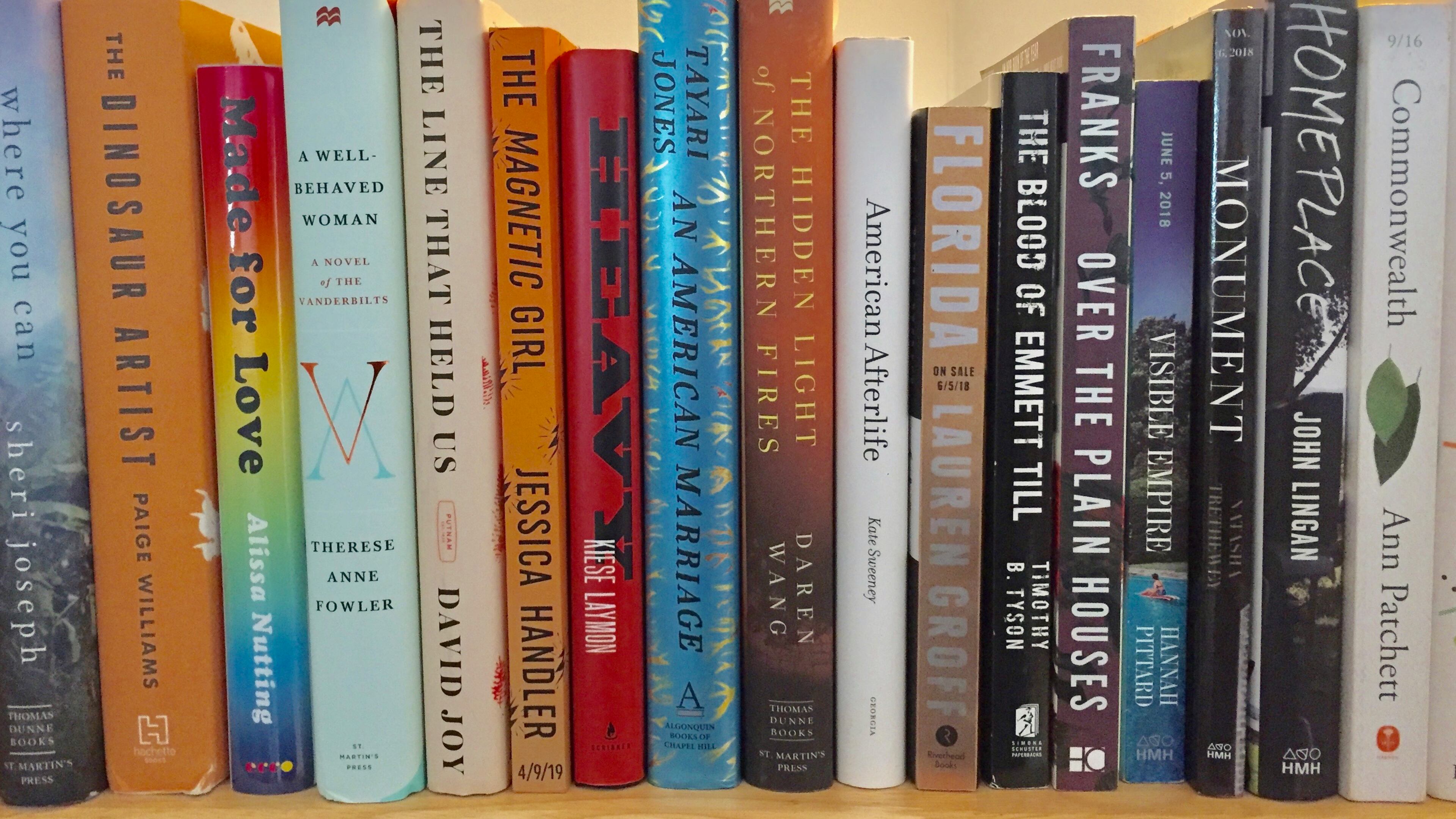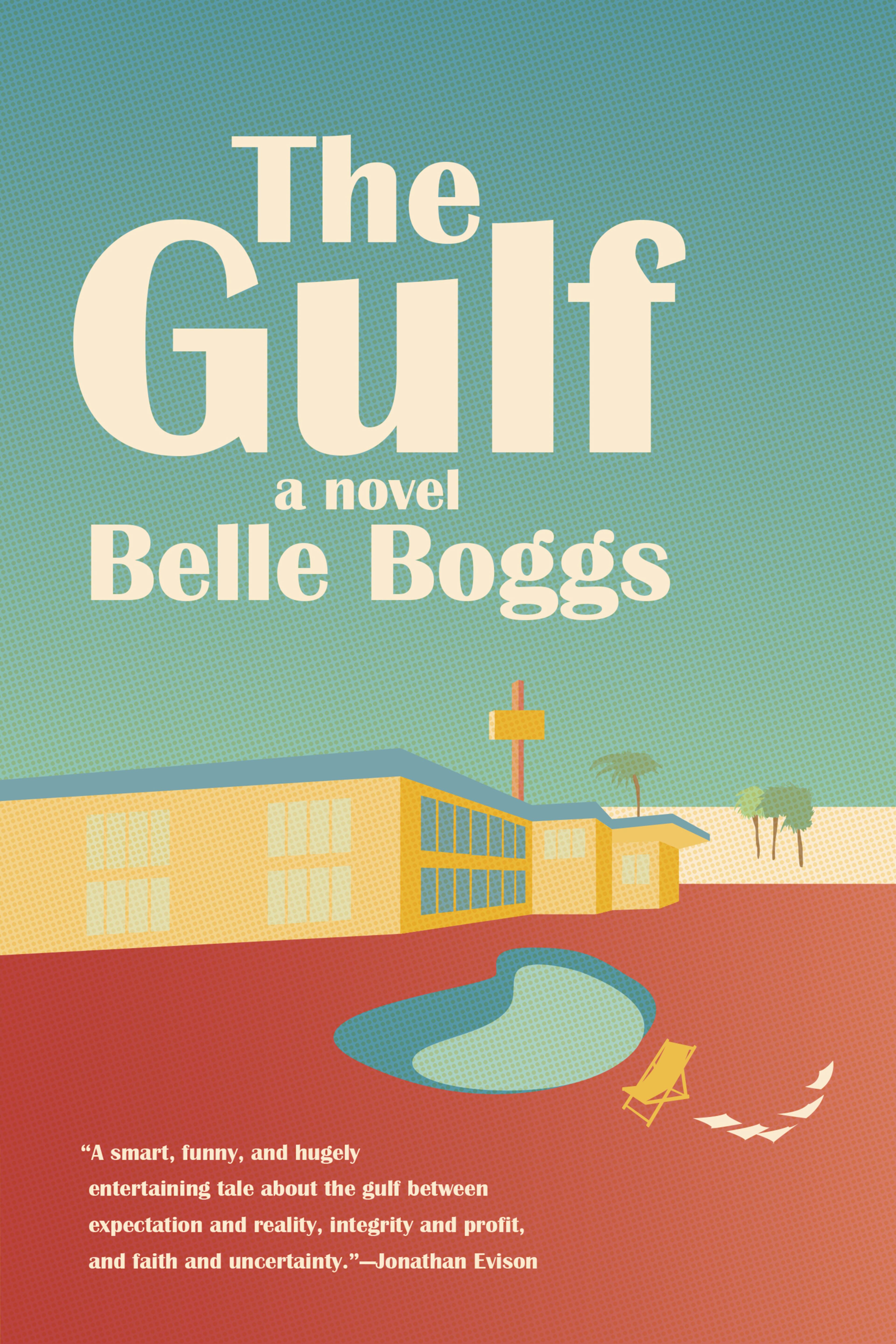Book review: Christian writing school sets stage for comic maelstrom

A low-residency MFA writing program is a master’s degree curriculum in which students gather on a campus to attend lectures and workshops for a week or two every semester, and then return to their homes to continue workshopping their writing with their cohorts online. The number of low-residency MFA writing programs in this country have exploded over the past decade as an increasing number of aspirational writers juggling jobs and families have sought to reinvigorate their dreams for the writing life.
As a product of just such a program, I'm keenly aware of how ripe that world is for skewering, and Belle Boggs does not fail to deliver in "The Gulf." But her debut novel is much more than a comic sendup of fragile literary egos. It's also a thoughtful, patient examination of the walls we create to separate ourselves and how looking past differences to find common ground can make them crumble. Without being shrill or simplistic or preachy, "The Gulf" is a timely commentary on our polarized political climate that offers a tiny spark of hope for the future.
Our guide through this social minefield is Marianne. The 34-year-old poet has a serious case of writer’s block and still hasn’t recovered from her broken engagement with her college boyfriend, who has since married and divorced. Now her Brooklyn apartment is going condo, and she’s facing eviction.
A lifeline materializes when her ex-fiance Eric contacts her with a business proposition. He and his accountant brother want to fulfill their elderly aunt’s desire to turn her abandoned motel on the Florida Gulf Coast into a low-residency writing program for Christian writers, and they want Marianne to run it. After all, the concept was Marianne’s idea, something the avowed atheist came up with one night in graduate school over one too many mojitos.
“’But that was a joke,’ Marianne said … ‘A joke about taking money from Christians. Which I’m all about, but it was a joke.’”
Nevertheless, she accepts the offer for lack of any other options, and she secretly hopes the venture will lead to a romantic reconciliation with Eric. Just like that, the Genesis Inspirational Writing Ranch is born.
One of the pleasures of reading “The Gulf” is spending time with Boggs’ vividly drawn characters. The faculty includes poetry instructor Lorraine Kominski, whose “years of low-grade alcoholism and erratic workshop behavior had bumped her several rungs down the teaching ladder,” and Tom Marshall, the “rumpled, unshaven, cowboy booted” fiction instructor whose “shtick was never dressing appropriately.”
Among the students are Manfred Collins, “a chain-smoking, bourbon-swilling serial workshopper,” and Davonte, a washed-up R&B star hoping to jump-start his comeback with a memoir.
But it’s Janine that captures Marianne’s attention. A devoutly religious preacher’s wife and mother of two self-absorbed daughters, Janine is inspired to write poetry by the right-to-die controversy surrounding Terri Schiavo, a Florida woman who fell into a vegetative state following cardiac arrest in 1990. Kept alive for 15 years by machines, Schiavo was the center of a prolonged court battle between her ultimately victorious husband, who wanted her feeding tube removed, and her parents, who were opposed.
Janine grew obsessed with the case and remains tormented by the court’s decision. She discovers that writing poems about it is “like a drug that does not eliminate pain but allows a coexistence with it.”

In every way, Janine and Marianne are opposites.
University-trained Marianne is cynical and distrustful. The collection of poems she’s supposedly writing is called “The Ugly Bear List,” which profiles people she abhors like political conservatives and the religious right. She doesn’t believe in God, but she “believed in science, believed in abortions, believed in the miracle of stem cells. She believed in population control and drug legalization, gun control and public transportation. She believed in generous arts grants and taxes for the rich.”
A self-taught poet, Janine is earnest and more invested in the well-being of others than herself. “She instinctively liked all insecure women: perennial dieters, remorseful child-spankers, closet smokers and binge drinkers and stress eaters. It gave her a role to play. She had a talent, she thought, for building people up.” When her husband builds her a glass-walled solarium for writing, she doesn’t have the heart to tell him she’d prefer the privacy of a closet.
RELATED: A literary friendship and the Harlem Renaissance
Despite Marianne’s resistance to Janine and her ilk, she can’t help noticing “there’s something honest and on the surface about them.” She wonders, “How much better, or at least easier — happier? — might (her) life be if she could think the same way Janine did? If she could think, here I am, alive, and be happy for it?”
But before things turn too kumbaya, two storms begin to brew. One is an act of God, a force of nature in the form of a tropical storm. The other invokes God’s name in the service of profiteering. Without Marianne’s consent, an investment company called God’s Word God’s World has insinuated itself into the school’s operations, and its grand schemes are stirring up a maelstrom.
On the surface, “The Gulf” is a genuinely funny look at an intriguing microcosm of disparate writers fumbling through life, striving to have their voices heard. But what makes “The Gulf” resonate is the fact that while no one’s political views are changed in the end, a mutual respect is forged that holds a glimmer of promise for a future less divided.
FICTION
“The Gulf”
By Belle Boggs
Graywolf Press
307 pages, $16


